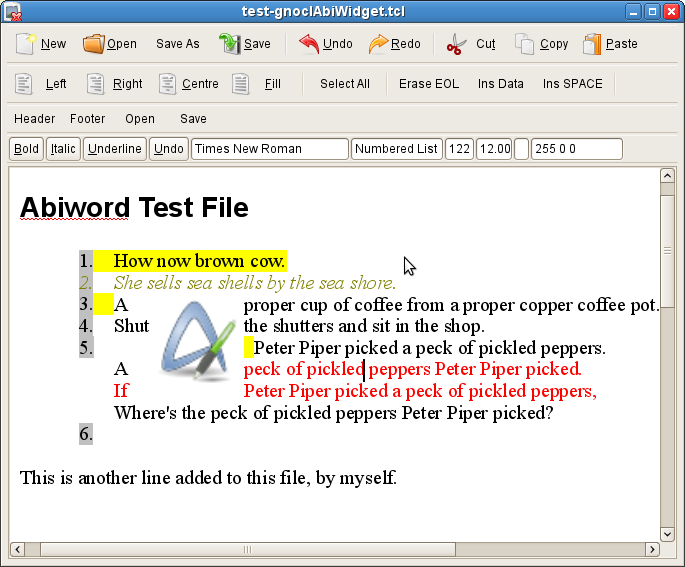Well, I've now completed the implementation of all the available signal bindings supported by the Abiwidget API. There are some notable lacunae (gaps) in the level of support offered by the API is itself. Certain features that I would have expected such as document clear (rather than open a new Abiword window), document set-up, text highlighting, and direct table cel addressing would have been most desirable. As would direct access to print functions too! But, lets hope that there's more to come in this area as the last update to the module appears (maybe I'm wrong) to have been completed in 2007.
Anyway, here the latest screenshot showing entries and toggles providing feedback on the various settings of the displayed text.

I quite like Abiword and will be exploring how to use it within some of my text processing applications. There are some 'quirks' such as the undo/redo operations and the canvas can leave drag lines a little when scrolling, but hey, that's something that can be lived with.
Finally, my gnocl megawidgets package has a rich text editing bar. This could do with revisting in order to enable it to be used in conjunction with with this new widget.
Anyway, here the latest screenshot showing entries and toggles providing feedback on the various settings of the displayed text.

I quite like Abiword and will be exploring how to use it within some of my text processing applications. There are some 'quirks' such as the undo/redo operations and the canvas can leave drag lines a little when scrolling, but hey, that's something that can be lived with.
Finally, my gnocl megawidgets package has a rich text editing bar. This could do with revisting in order to enable it to be used in conjunction with with this new widget.
Comments